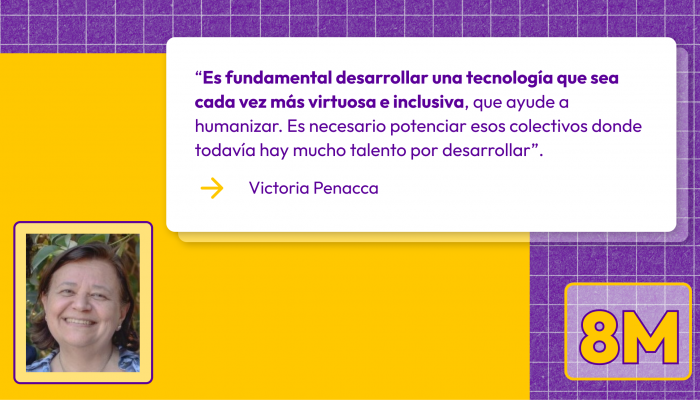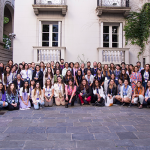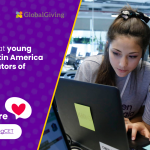Technology for Human Development
#8M | International Women’s Day
In an economically challenging global context, and an Argentina with its own difficulties in guaranteeing the population’s social welfare, there are data that point to technology as a possible way forward to reverse the situation. This industry is increasingly crossing more and more productive sectors, while there are changes in the way of thinking about processes, management and, undoubtedly, an update of the professional profiles needed to integrate technological solutions to the different areas. The current scenario makes investing in activities that make intensive use of technology, such as those activities clustered in the knowledge economy, a long-term development strategy. To move forward along this path, we need a comprehensive approach that considers essential aspects such as the integration of diverse profiles and training in the skills required by the new production paradigm. “An Unequal Career: The Gender Gap in the Argentine University System” (CET, 2022) shows that this is still a challenge: for every 100 female students, only 1 chooses a programming career, while women represent only 34% of those studying science, technology, engineering, and mathematics careers. Chicas en Tecnología talked about this present under construction with Victoria Penacca, a professional who trained in pedagogy and developed in the technological industry driven by curiosity and the certainty that infinite possibilities for human development can be found there.
An interdisciplinary tour
Victoria Penacca is a university professor in Educational Sciences, with a diploma in Quality of Educational Systems. She specializes in project leadership and consulting in training and development processes. In the work environment, she is Project Manager at Argencon, an association of companies in the knowledge economy. These are industries that involve the contribution of human knowledge to add value and create new products and services. The potential for growth and the need for more profiles for these activities combines social, economic and community goals, explains Victoria.
What Is the role of innovation in the knowledge economy?
I cannot imagine innovation without the application of knowledge. Today, innovation in any sector of the economy is mainly focused on technological development. They are essential partners. Knowledge economy can be considered as a sector in its own right, but its application is cross-cutting. For example, today’s banks cannot live without the people managing all the technological aspects. From the ATM to the website. There is a cross-cutting application to almost all areas of the economy, which is also why there is so much demand for people trained in these subjects.
Argencon stresses the importance of creativity in the world of work, what is its importance in the knowledge economy industry?
Creativity is a human capacity, and innovation is the application of that creativity. A person can be creative when they make a recipe, when they play with their pet, etc. We use creativity everywhere. When we face an innovation, we usually do so based on what we know. Then we learn a new language and exploit its possibilities. What creativity and innovation do is to take advantage of these possibilities. In this sense, technology opens infinite doors. Throughout history, when someone invented a technology, they had no idea about the use it would end up having. This is where creativity and innovation play an inseparable role from technology in expanding these possibilities. I think it is also what makes technology not a mechanization but a tool for human development.
How can human development be achieved in an area where there are gaps such as gender?
Today’s technology is the lever of development. And what we want to achieve is equality, an inclusion of all diversities. We want it as people, as companies. There are many, many studies that show that diversity is a positive thing because it produces better results. As society continues to place greater importance on diversity and inclusion, it is becoming increasingly unacceptable for companies to distance themselves from these ideals. If we do not integrate the groups that are excluded from the use of technology in technology companies, we will create more gaps. Technology is very inclusive. For example, technology allows people with disabilities to do jobs that they were not able to do in the past. So, if we do not reduce the gender gap, we are widening it because women who are not integrated into the knowledge economy will be even more marginalized. The focus of economic development will be centered on the knowledge economy; it is a sector which is constantly growing, and if women are not included, this will lead to more exclusion. The woman’s point of view is essential. When technological development is not carried out with an inclusive approach, distortions are created. If you think of technology based on biases, you are creating a technology that excludes. It is essential to develop technology that is increasingly virtuous and inclusive, technology that helps humanizing. It is necessary to promote these groups where there is still a lot of talent to be developed.
Victoria is categorical about the possibilities that adolescent girls can find in the technological field: “I would tell them to think that whatever they like or are interested in will have, at present and in the future, a technological feature. I would ask them if they would like to be spectators or main characters. If you would like to be the main characters of your lives, lose your fear of technology, get involved, and you will be empowered in a way you cannot even imagine.”
The argentinian outlook
The Chamber for the Argentinian Software Industry reported that 14,800 new jobs were created in 2021 compared to the previous year. Since 2015, employment has steadily grown, creating almost 40,000 new job positions. Among the most sought-after profiles are roles in mobile application design, machine learning and robotization specialists, as well as those linked to data science, senior development, and software architecture.





